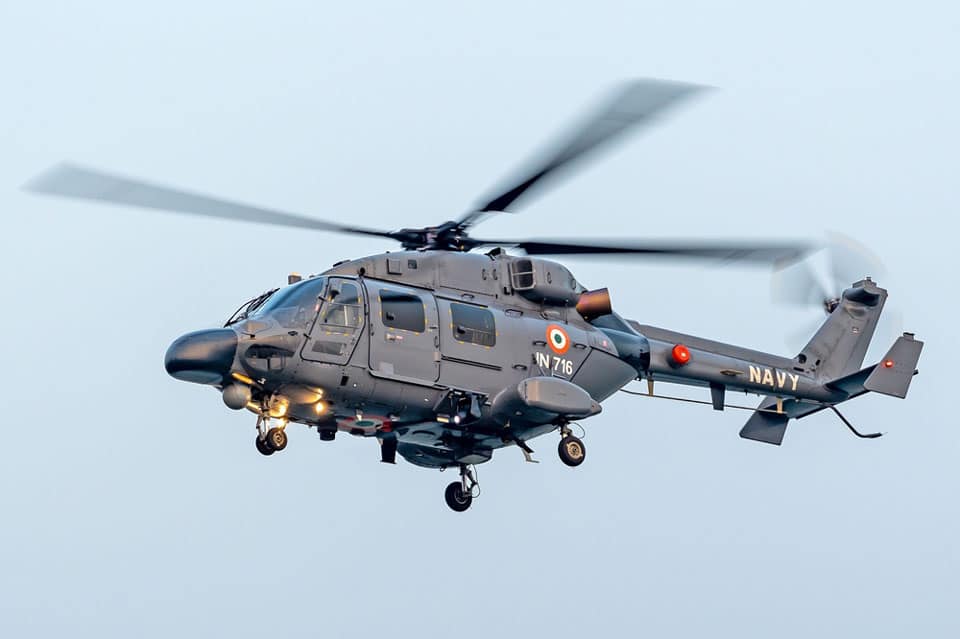These are 10 of the Shortest Wars in History

It’s been just over a year since the United States’ involvement in Afghanistan came to an end. This conflict lasted for 20 years, making it the longest armed struggle in American history. In comparison, the second Iraq war, which ended officially in 2011, lasted only 8 years. However, the aftermath of this conflict led to a second war in 2013 between the new Iraqi government and its allies, which kept the US embroiled for several more years.
Although not all wars are as protracted as these post-9/11 conflicts. Some wars can swiftly reach a climax – either due to a decisive victory by one side or the prompt intervention of the global community, which persuades both sides to lay down their arms. In fact, there have been instances where international conflicts have been resolved in a matter of days, if not hours.
To identify the briefest wars in recorded history, we at CEOWORLD magazine meticulously examined a comprehensive list of significant global conflicts that lasted less than a month. This list was expertly curated by The Independent to ensure utmost accuracy and relevance. What we discovered was a diverse array of wars spanning various time periods and geographical locations across the globe. From a conflict dating back nearly a millennium to one that ended as recently as 2008, these wars took place in Europe, Asia, Africa, Central America, and the Middle East.
It can be quite challenging to determine the exact origins of many wars as they often have a chaotic and unpredictable start. Oftentimes, conflicts begin with minor clashes that gradually escalate into full-blown battles. However, short-lived wars are not the norm. More often than not, armed conflicts can drag on for several months, or even years. In fact, some wars are the culmination of deep-seated tensions that have been brewing for generations, with nations engaging in sporadic fights over time. These enduring wars have marked a significant place in history.
- Anglo-Zanzibar War
> Length: 38 minutes
> Span: Aug. 27, 1896
> Combatants Zanzibar, British Empire
The Anglo-Zanzibar War, known as the shortest war in recorded history, holds a place in the late 19th century as Zanzibar, a British protectorate, was embroiled in a succession crisis. With the death of the sultan in 1896, multiple potential heirs were in line for the throne. However, the British had their sights set on Hamud ibn Mohammed, believing him to be a favorable choice for their Empire. Prince Khalid ibn Barghash, on the other hand, had other plans and seized control of the palace. In response, a British Royal Navy admiral demanded Barghash’s exit from the palace, but he adamantly refused. The disparity in power between the Zanzibari forces and the formidable British naval forces was evident, resulting in countless casualties on the Zanzibari side while only one British soldier was injured. In a mere 40 minutes, Barghash surrendered, marking the end of the war. - Football War
> Length: 100 hours
> Span: Jul. 14-18, 1969
> Combatants El Salvador, Honduras
During the late 1960s, a large number of immigrants made the difficult decision to leave their home country of El Salvador in search of better opportunities in neighboring Honduras. However, their hopes were quickly shattered as they faced mistreatment and discrimination while trying to make a living in their new home. To make matters worse, tensions between the two countries escalated when the Honduran government attempted to seize land that had been worked by Salvadorans and redistribute it to their own citizens. The situation reached a boiling point when the two nations coincidentally faced off in a World Cup Qualifying soccer match. Supporters from both sides engaged in violent clashes, reflecting the deep-seated animosity that had been building up for years. As the situation continued to deteriorate, El Salvador took the drastic step of cutting off diplomatic ties with Honduras. This only served to escalate the conflict, leading to several border skirmishes between the two nations. And on July 14, 1969, El Salvador’s army launched a full-scale invasion of Honduras, unleashing a barrage of bombs from warplanes upon the unsuspecting country. The devastating consequences of this senseless war were felt by both sides, with an estimated 3,000 lives lost, mostly innocent Honduran civilians. Finally, after 100 hours of intense fighting, a ceasefire was agreed upon, bringing an end to the brutal conflict. It was a tragic reminder of how easily misunderstandings and tensions between nations can lead to such destructive outcomes. - Six-Day War
> Length: Six days
> Span: Jun. 5-10, 1967
> Combatants Israel, Egypt, Jordan, Syria, Iraq
Since its establishment in 1948, Israel has been embroiled in constant conflict with neighboring Arab nations. These tensions reached a boiling point in the mid-1960s, resulting in a series of escalating border skirmishes that ultimately erupted into a full-blown war on June 5, 1967. The buildup of troops by Egypt, Syria, and Jordan along Israel’s borders prompted a preemptive airstrike by Israel, decimating the majority of Egypt’s air force. With a swift and decisive victory, Israel gained the upper hand and also successfully neutralized much of Syria’s air capabilities. Israeli soldiers then advanced through the Gaza Strip and the Sinai Peninsula, overpowering Jordanian forces and seizing control of Jerusalem, the Golan Heights, and the West Bank. After five days of intense fighting, a ceasefire was finally agreed upon on June 10. The Arab countries suffered heavy casualties, while Israel significantly expanded its territory. - Russo-Georgian War
> Length: Six days
> Span: Aug. 7-12, 2008
> Combatants Russia, Georgia
Since the collapse of the Soviet Union in 1991, there has been ongoing tension between Georgia and pro-Russian separatists over two regions – South Ossetia and Abkhazia. This tension reached its boiling point in 2008 when U.S. President George W. Bush openly expressed support for Georgia’s potential membership in NATO, which was perceived as a direct threat by Russia. In August of that year, after months of military build-up on both sides of the border, a full-blown conflict erupted in the disputed regions when Russia launched airstrikes on South Ossetia. The Russian military then proceeded to invade Georgia for several days. Eventually, a ceasefire was agreed upon and Russia now recognizes South Ossetia and Abkhazia as independent entities. - Slovenian Independence War
> Length: 10 days
> Span: Jun. 27-Jul. 7, 1991
> Combatants Slovenia, Yugoslavia
During the early 1990s, there was a significant shift in Eastern Europe towards democracy, as many countries began to break away from communist rule. This movement was particularly evident in Yugoslavia, where nationalist sentiments were on the rise. This was fueled by the actions of Serbian leader Slobodan Milosevic, who was determined to consolidate his power. On June 25, 1991, Slovenia boldly declared its independence from Yugoslavia. The Yugoslavian army responded by attempting to suppress the secession, but their efforts were ultimately unsuccessful. In fact, many non-Serbian soldiers actually abandoned their posts, as they had no desire to continue fighting for a united Yugoslavia. After 10 days of intense conflict, the Yugoslavian troops were forced to retreat, and Slovenia was officially recognized as an independent nation. - War of the Stray Dog
> Length: 11 days
> Span: Oct. 19-29, 1925
> Combatants Greece, Bulgaria
In the early 20th century, Greece and Bulgaria found themselves at odds due to disputes over territory. The tension between the two nations boiled over in 1925 during what became known as The War of the Stray Dog, or The Incident at Petrich. However, there are conflicting accounts of how the conflict began. Some say that a Greek soldier was shot and killed by Bulgarian guards when he crossed the border to retrieve his runaway dog, while others claim that a Bulgarian soldier met the same fate for the same reason. Regardless of the specific trigger, Greece demanded retribution for the incident and, when Bulgaria refused, the Greek Army took matters into their own hands and launched an invasion. However, after only a few days of fighting, Bulgaria called upon the League of Nations to intervene. The League, in turn, demanded that Greece withdraw their forces and pay a sum of £45,000 as compensation. Despite initial resistance, Greece eventually agreed to these terms. - Indo-Pakistani War
> Length: 13 days
> Span: Dec. 3-16, 1971
> Combatants India, East Pakistan, West Pakistan
The Indo-Pakistani War of 1971 was a result of ongoing tensions between India, Pakistan (then known as West Pakistan), and Bangladesh (then known as East Pakistan). The simmering animosity between the two regions had been building up for a long time. In March 1971, the situation escalated when West Pakistan resorted to violent suppression of nationalist movements in East Pakistan. This sparked a desire for independence among many separatists. As the conflict intensified, India was inevitably drawn into the fray when West Pakistan launched airstrikes against its neighbor in December of that year. The war was short-lived but devastating, with the Indian Army swiftly overpowering West Pakistani forces who were already engaged in combat with East Pakistan. In the end, East Pakistan emerged victorious and declared its independence, officially becoming the nation of Bangladesh. The war had come to an end, but its impact on the region would be felt for years to come. - Serbo-Bulgarian War
> Length: 14 days
> Span: Nov. 14-28, 1885
> Combatants Serbia, Bulgaria
In the late 19th century, tensions between Serbia and Bulgaria reached a boiling point when King Milan of Serbia feared that the unification of Roumelia with Bulgaria would disrupt the delicate balance of power in the Balkans. In response, he swiftly mobilized his troops along the border. After a series of negotiations between the two leaders, Serbia ultimately declared war. Despite their initial bravado, the Serbian forces were no match for the Bulgarian army and were quickly pushed back across the border. However, the conflict was short-lived as the Bulgarians agreed to an armistice on November 28th. The threat of intervention from Austria-Hungary was enough to convince them to lay down their arms. In the end, a formal peace treaty was signed between the two nations in March of the following year, bringing an end to the two-week war. It was a tense and volatile period in the Balkans, but ultimately, diplomacy prevailed and a peaceful resolution was reached. - Norman Conquest
> Length: 17 days
> Span: Sep. 28-Oct. 14, 1066
> Combatants Normans, England
The Norman Conquest was a significant event that forever altered the course of human history. According to historical accounts, Norman leader William the Conqueror believed that he had a rightful claim to the English throne due to a promise made to him by King Edward. However, upon his death, King Edward chose to name nobleman Harold Godwineson as his successor, leaving William feeling betrayed and determined to assert his claim. On September 28, 1066, William and his army landed in England and quickly took control of the town of Pevensey. The two opposing forces eventually clashed in the decisive Battle of Hastings 17 days later. Tragically, King Harold was killed in battle and his army was ultimately defeated. With this victory, William became the first Norman king of England, marking the end of the Anglo-Saxon era and the beginning of Norman rule. - Georgian-Armenian War
> Length: 24 days
> Span: Dec. 7-31, 1918
> Combatants Georgia, Armenia
The Georgian-Armenian War was a brief but intense conflict that took place in December of 1918. It only lasted for 24 days, making it one of the shortest wars in history. The root cause of the conflict was a border dispute between Georgia and Armenia, two neighboring nations in the Caucasus region. Both countries had recently gained their independence from the Russian Empire and were vying for control of certain territories.
Have you read?
Ranked: These Are The Richest Formula 1 (F1) Drivers, 2023.
These Are The States With the Highest Property Taxes in the US.
Future Weapons America Is Spending Billions On Research And Development (R&D).
The best elite U.S. special forces.
Study: The 10 Fastest Growing Cities In The US.
Ranked: Top Companies in Sports Tech, 2023.
Bring the best of the CEOWORLD magazine's global journalism to audiences in the United States and around the world. - Add CEOWORLD magazine to your Google News feed.
Follow CEOWORLD magazine headlines on: Google News, LinkedIn, Twitter, and Facebook.
Copyright 2025 The CEOWORLD magazine. All rights reserved. This material (and any extract from it) must not be copied, redistributed or placed on any website, without CEOWORLD magazine' prior written consent. For media queries, please contact: info@ceoworld.biz








